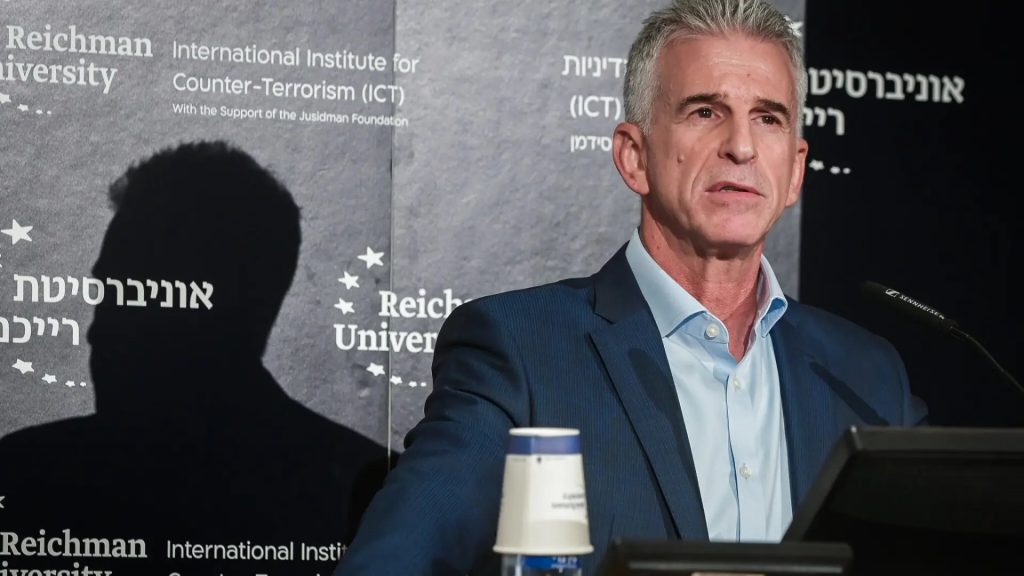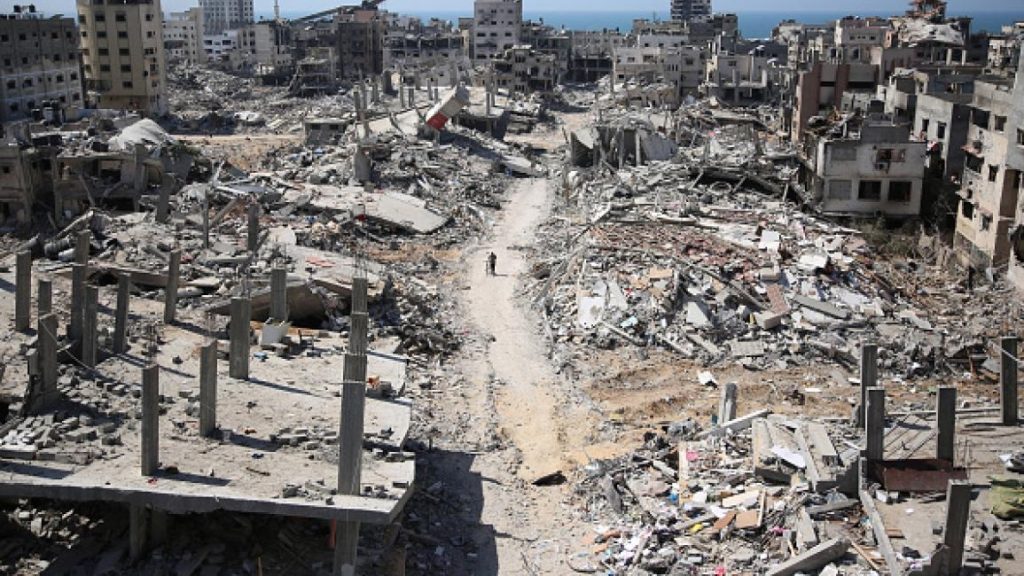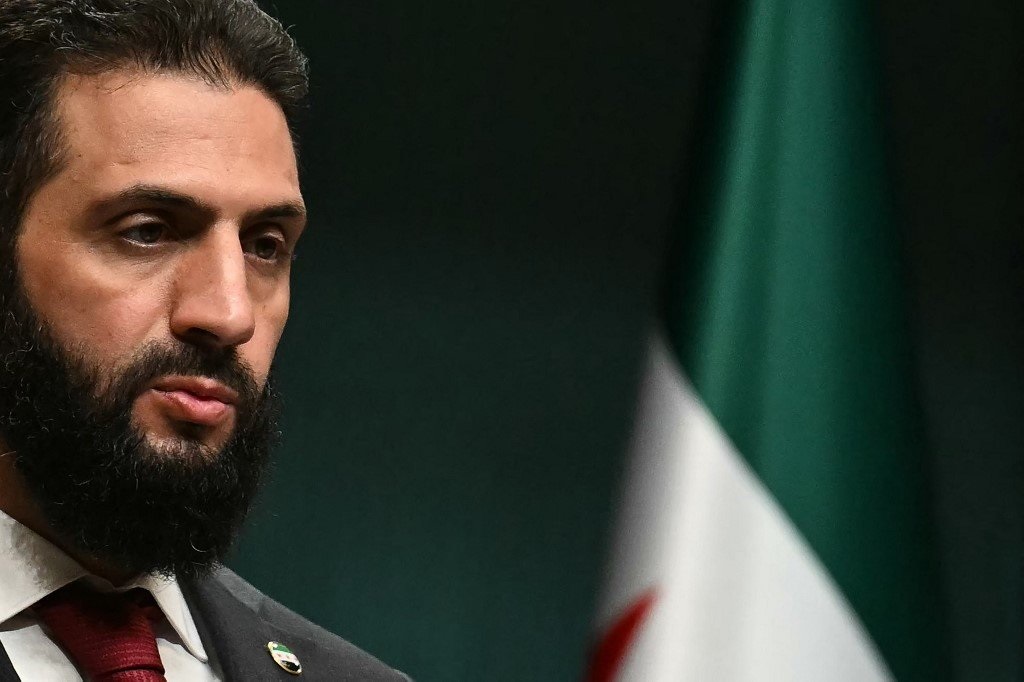Watan-High-level Arab diplomatic sources revealed a secret meeting recently held in Abu Dhabi between Syrian interim president Ahmed Al-Sharaa and Israeli Mossad chief David Barnea, marking a significant development that brings the Damascus-Tel Aviv normalization file back to the forefront under an Emirati-American initiative.
According to sources who spoke to “Emarat Leaks” on condition of anonymity, the meeting took place on July 8 at the Al-Watan Palace in Abu Dhabi, away from media attention, coinciding with Al-Sharaa’s official visit to the UAE and his meeting with Emirati President Mohammed bin Zayed Al Nahyan.
The sources explained that the meeting was a direct Emirati initiative as part of Abu Dhabi’s ongoing efforts to encourage more Arab states toward normalization with Israel, within a broader political and security project aimed at redrawing the regional influence map.
Hot Topics on the Table
Leaked information indicates the meeting discussed prospects for normalizing relations between Damascus and Tel Aviv, disregarding the Arab Peace Initiative’s terms, which call for full Israeli withdrawal from occupied Arab lands, foremost among them the Syrian Golan Heights, in exchange for normal diplomatic ties.
The discussion centered on the possibility of announcing mutual steps in the coming months, including opening discreet diplomatic channels and reducing Syrian rhetoric against Israel in international forums, in exchange for Israeli economic and security incentives mediated and financially supported by the UAE.
The meeting reportedly reached a preliminary agreement to “freeze” Syrian rhetoric regarding the occupied Golan, in return for promises of massive Emirati investments in the Syrian economy, along with Israeli facilitation in easing some international restrictions on Syria.

$800 Million for Tartus Port
As a practical indicator of these incentives, DP World (Dubai Ports World) announced on Sunday a major agreement with the Syrian government to develop and operate the Tartus port with investments reaching $800 million. This fuels speculation that this investment is politically linked to the ongoing Damascus-Tel Aviv track under Abu Dhabi’s sponsorship.
Under the agreement, DP World will invest the stated amount during a 30-year concession period to develop the port’s infrastructure and turn it into a regional commercial hub linking Southern Europe, the Middle East, and North Africa.
Tartus port is one of Syria’s main maritime facilities, especially after over a decade of conflict that caused extensive destruction to the country’s infrastructure and a severe shortage of long-term investments.
Observers note that the agreement carries political significance alongside its economic aspect, given its timing coinciding with Emirati moves to normalize Syrian-Israeli relations.
Mohammed bin Zayed: The Architect of Normalization
Behind these moves stands the growing role of Mohammed bin Zayed Al Nahyan, who is described as the “godfather” of normalization in the Arab and Islamic worlds, having led efforts to bring Bahrain, Morocco, and Sudan into the Abraham Accords with Israel in recent years. He aims to expand this track to include other regional countries.
Day by day, the UAE’s pivotal role in encouraging new Arab countries toward normalization with Israel unfolds within a regional project that goes beyond peace or economic motives, harboring strategic aims tied to reshaping the political and security influence map from North Africa to the Sahel region—particularly containing Algeria and consolidating control over Sahel’s resources, notably Mauritania.
Previously, diplomatic sources revealed a meeting held in Abu Dhabi on June 28, attended by Ronen Bar, head of Israel’s Shin Bet, Ali Saeed Al Shamsi, deputy head of the UAE’s State Security, and Mauritania’s defense minister, Hanna Ould Sid’i. The meeting aimed at pushing Mauritania toward normalization with Israel in exchange for investments worth $3 billion.
Regional and International Concerns
Observers view the secret meeting between Al-Sharaa and Barnea as a major breakthrough in the wall of relations between Syria and Israel, especially as Damascus has long considered itself at war with Israel due to the occupation of the Golan Heights.
The Emirati moves also raise concerns among regional and international actors, who see unilateral normalization with Israel as a breach of the Arab Peace Initiative and a fragmentation of the unified Arab position on the Palestinian cause, at a time of rising tensions in the occupied territories.

Experts believe the UAE, supported by Israel and the U.S., is not only pushing for separate normalization agreements but also working to re-engineer the balance of power in the region—from North Africa to the Levant—in a project that may have broad implications for security, politics, and the economy in the coming years.
Meanwhile, no official comments have been issued by Damascus, Tel Aviv, or Abu Dhabi regarding the secret meeting, while DP World declined to link its Tartus investment to any political dimensions, limiting its statements to commercial and economic considerations.
